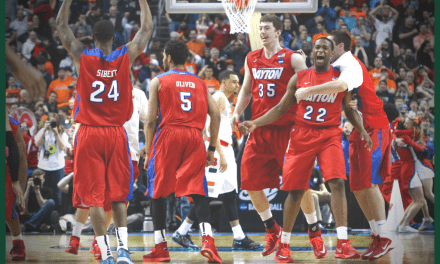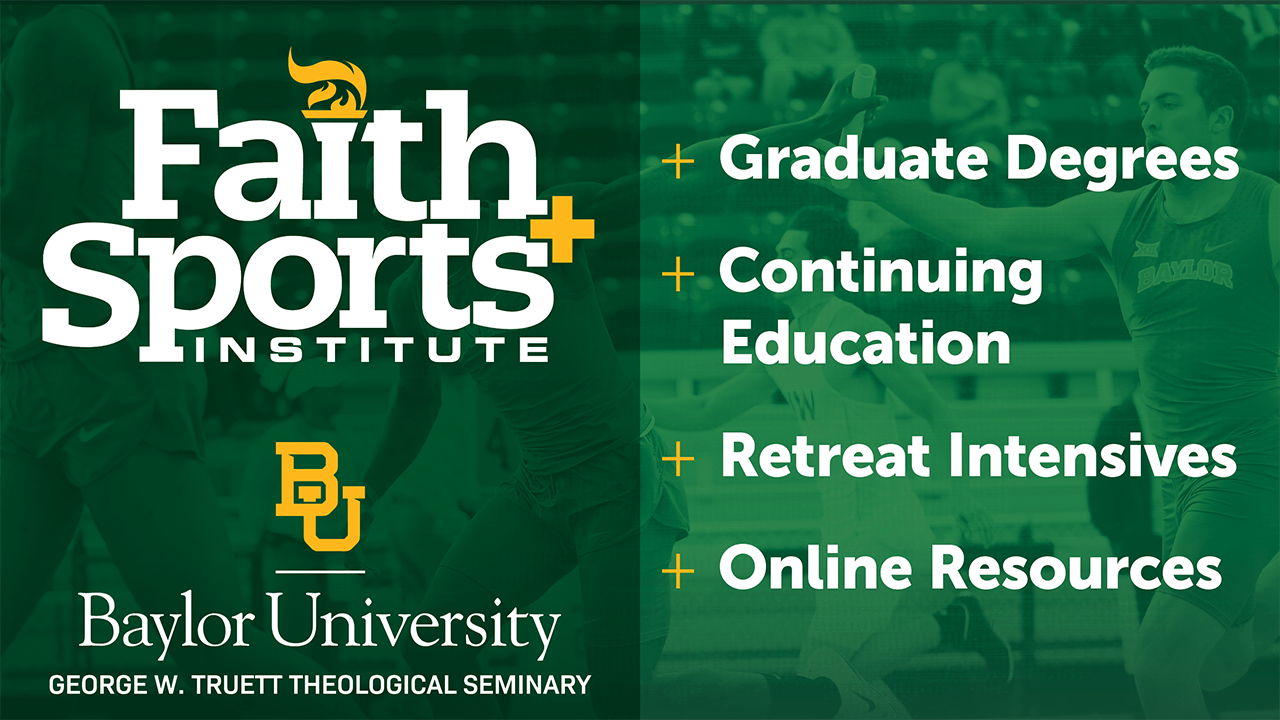
John White
Have you ever wondered whether God wants you to achieve greatness?
Greatness is something humans relentlessly question, debate, and seek in all spheres of life. We admire and honor great leaders, scientists, physicians, musicians, and artists. We even hand out awards to signify our recognition of greatness: the Nobel Prize, Academy Awards, the Grammys.
In the athletic world, we similarly engage in endless debates about the G.O.A.T (Greatest of All Time). In basketball, is it LeBron James or Michael Jordan? In tennis, is it Serena Williams, Steffi Graf, or Martina Navratilova?
In the Bible, too, we witness how Jesus’ disciples argued about which one of them was the greatest (Matthew 18; Mark 9). An interesting observation is that Jesus never dismissed their question; however, he did reframe it.
At the Faith & Sports Institute’s high school summer retreat we boldly dare youth to consider that they are made for greatness. But we try to follow Jesus’s lead by redefining greatness.
Greatness must be redefined because in the world of sports, athletes and coaches can reach the summit of great achievements while not being great persons. The FSI Retreat takes this disconnect seriously. We blend contemplation with competition in order for Christian character and convictions to inform and transform how student athletes think, feel, value, compete, and live.
The vision that instructs and leads our immersion experiences is that, as people created in the image of God, we are made for greatness—if we properly understand God’s vision for greatness.
GREATNESS REDEFINED
Greatness falls under the category of character and virtue. Character is the essential “stuff” we’re made of, the ingredients of ourselves that govern who we are and what we do. A virtue is a character strength rooted in core beliefs and embodied in our habits. Philosophers and theologians have listed and described various virtues, and there is one, connected to the cardinal virtue of courage, that focuses on greatness: magnanimity.
What exactly does it mean to be a magnanimous person?
The word used for magnanimity comes from Latin: magna + animus = Magnanimity
The first root word is magna, meaning “great.” A host of English words use the root word magna. For example, a magnifying glass uses a lens to magnify an object, making an object bigger or greater. When a thing is said to be magnificent it is described in terms of greatness, such as the Grand Canyon, the Rocky Mountains, or the size of the state of Texas.
The second part is the word animus, referring to the soul or spirit. The verb animate, which means to bring to life, comes from this word. Someone animated in character is vivacious or full of life. Animated cartoons, such as Tom and Jerry, are designed from still drawings which give the appearance of lifelike characters in motion.
These two root words (magna and animus) combined together refer to “greatness of soul” or a “great-souled person.”
FSI’s high school retreat aims to equip student-athletes with the tools and set them on the path to becoming great-souled, great-hearted persons.
Some might feel uncomfortable with the idea of pursuing greatness because it might appear that magnanimity opposes humility. However, magnanimity actually depends on humility when rightly understood.
Thomas Aquinas writes:
“Magnanimity makes a person deem him/herself worthy of great things in consideration of the gifts he/she holds from God.”
Two important conclusions follow from this quote.
First: Great-souled people take stock that a Great God made them. We have a Maker or Creator or Great Author; our greatness is derived from who God is and should, therefore, reflect or magnify God’s greatness. Not because God needs to be made great, but because God is the true source and standard of greatness.
At FSI we refer to this magnifying of and pointing to God as worship. When we strive for greatness we are ascribing worth to God in how we play and do sports as Christians
Second: Our great God has given us natural abilities and spiritual gifts to be used well. Consequently, if God gifts us with the potential to do great things, this should keep us humble and dependent on God. We should reach out to attempt and do great things while also expressing gratitude to God who blesses us with resources that we can use to serve him and others.
In short: Great God and Great Gifts lead to achieving great things.
GREATNESS ACCORDING TO JESUS
Let’s listen to a conversation Jesus had with his disciples about the concept and practice of greatness. On one occasion, described in Matthew 20:20-28, Jesus assembled his disciples and said:
“You know that the rulers of the Gentiles lord it over them, and their high officials exercise authority over them. Not so with you. Instead, whoever wants to become great among you must be your servant, and whoever wants to be first must be your slave—just as the Son of Man did not come to be served, but to serve, and to give his life as a ransom for many.”
For Christians, greatness must go through Jesus, the supreme human example and measure of greatness. We see in this passage that the character of true greatness cares for and considers others. Similarly, great-souled athletes help make others great; they use their greatness to lift, serve, and elevate others’ greatness.
In the last verse of this passage, Jesus points out that he came to reconnect us to God by taking care of our sin and separation from God, which keeps us from true greatness. We must get Jesus right in order to get magnanimity right.
We learn greatness by following the path of Jesus which involves stretching and training our souls, bodies, and hearts with others toward greatness. As Pope Benedict XVI put it:
“Man was created for greatness – for God himself; he was created to be filled by God. But his heart is too small for the greatness to which it is destined. It must be stretched.”
At FSI’s high school retreat, we stretch student-athletes to consider greatness from a Christian perspective. We believe that pursuing greatness is all about leaning into the presence of God, cultivating virtuous Christlike character, and using our gifts to worship God and serve others. FSI believes that if we can redefine greatness and become faithful, loving, disciplined, hopeful, and courageous people, we will be on the path to true greatness in sports and life.
The Faith & Sports Institute Retreat is made possible by the generosity of Lilly Endowment, Inc. Visit our website to learn more about the FSI Retreat: baylor.edu/truett/FSIRetreat.
 FSI Retreat leadership in 2021 included, from left to right: John White (Associate Professor of Practical Theology at Truett Seminary and FSI Director); Abby Lee (Truett Seminary student and FSI GA); Elizabeth Bounds (Truett Seminary graduate and FSI Retreat Director); Cindy White (FSI Co-Founder and Retreat Program Director).
FSI Retreat leadership in 2021 included, from left to right: John White (Associate Professor of Practical Theology at Truett Seminary and FSI Director); Abby Lee (Truett Seminary student and FSI GA); Elizabeth Bounds (Truett Seminary graduate and FSI Retreat Director); Cindy White (FSI Co-Founder and Retreat Program Director).





